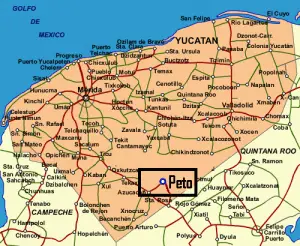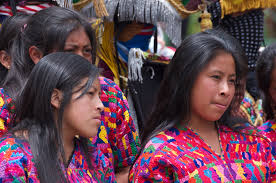The Classic Mayan civilization which had come into being sometime around the 3rd century B.C. underwent rapid decline in the 9th century A.D.
Following this, the Mayan population mostly shifted to the northern regions such as the Yucatan.
When the Spaniards arrived in the 16th century, the Mayan population was mostly divided in a number of different cities and settlements.
It is estimated that the total Mayan population at the time was around 8 million.
Following the arrival of the Spaniards, Mayan rule in the Yucatan region and other parts of Mesoamerica came to a definite end.
The Mayan population suffered as a result of the invasion in the form of massacres, large-scale death due to ‘Old World’ diseases and economic strife.
However, a sizable number of the Mayan survived and today inhabit different regions around Mesoamerica.

By 2001, it was estimated that the total population of the Mayans was around 7 million.
In other words, the Mayan population had nearly reached pre-Columbian figures after an interval of nearly 5 centuries.
The largest portion of this Mayan population resides in the Guatemala region.

The Mayan population that lives in Mesoamerica today is scattered in a number of states in the region.
The largest portion of these Mayans live in the regions of Guatemala, Belize and Honduras.
A sizable portion of the Mayan population also resides in the Mexican state of Yucatan, estimated at around 2 million.
The cultural identity of the Mayan population, distributed as it is among different modern states, varies significantly.
Mayan populations in Mexico, Yucatan and Guatemala have largely managed to preserve many aspects of the original Mayan culture.
Mayans in certain other regions, on the other hand, have adopted many aspects of the culture that came into being as a result of Spanish interaction with the native Mayans.
The latter trend has been encouraged over the centuries also because Mayans who adopted Spanish-favored aspects of culture tended to have better economic opportunities before the end of the Spanish rule in the region.

A major portion of the Mayan population today lives along the Yucatan region, distributed into the Mexican state of Yucatan and the neighboring regions including Belize.
It is estimated that at the turn of this century, nearly 1.2 million spoke the Mayan language in this region. A far greater number has Mayan origins and holds on to other aspects of the original Mayan culture.
Despite centuries of subjugation following the 16th century conquest by the Spaniards, the Mayan population today has preserved many vital aspects of their culture.
Most notable among these is the Mayan language or its close variants which are spoken by a large portion of the Mayan population, even though Spanish also remains one of the most widely spoken languages among the Mayans.
Other aspects of the ancient Mayan culture that survive today include certain forms of dance, rituals, music and dressing.